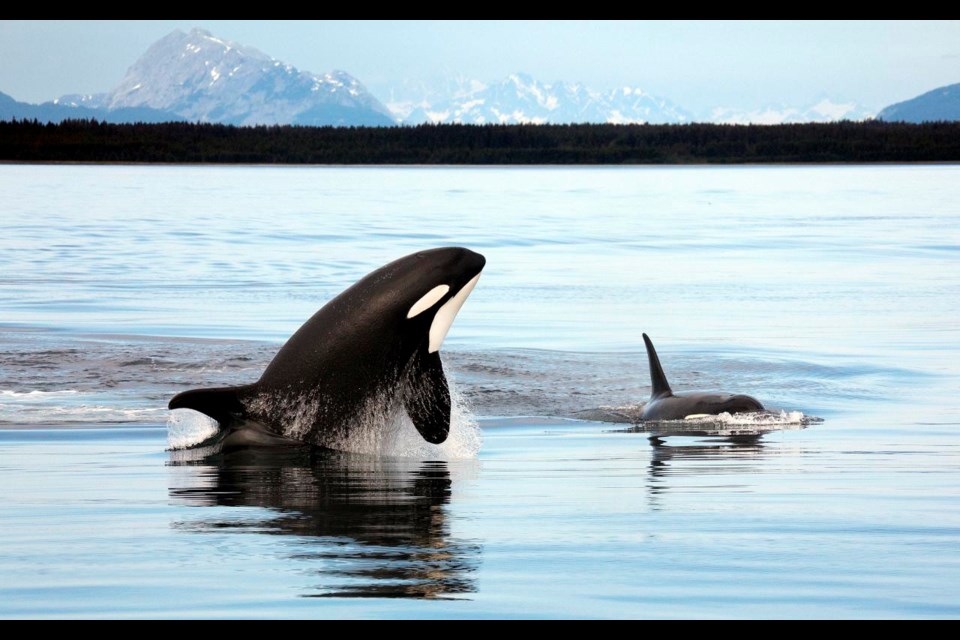B.C.’s lands and waters are home to nearly 1,800 species of animals and plants at risk of extinction, more than anywhere in Canada.
To save these species, we must protect the habitats that shelter them by creating large, well-managed, connected protected areas where native plants and animals thrive, now and forever; and where people and communities can live off the land and ocean without impacting future generations.
Canadian Parks and Wilderness Society - British Columbia, also known as CPAWS-BC, is the provincial chapter of one of Canada’s oldest not-for-profit, grassroots-based conservation groups. For over 40 years, CPAWS-BC has been protecting wilderness in every corner of B.C. and deep into the ocean. In the face of the dual biodiversity and climate crises, they advocate for nature conservation so that forests, grasslands, oceans, and the animals we love and depend on can thrive forever.
CPAWS-BC works in partnership with First Nations advocating for the creation of large parks, protected areas, and wildlife corridors – areas including the home of the orcas in the Salish Sea, the unique grasslands of the South Okanagan Similkameen, and the lush waters of Gwaii Haanas where rainforest meets the sea.
CPAWS-BC works to bridge relationships between Indigenous leaders, provincial and federal governments by advocating for well-designed and managed protected areas and keeping conservation a top priority for governments. This is critically important, as science now affirms what generations of Indigenous stewardship and knowledge have nurtured: biodiversity is highest on Indigenous-managed lands. Indigenous Protected and Conserved Areas (IPCAs) offer a nature-based solution to combat habitat destruction and species loss.
“With wildlife populations plummeting and biodiversity loss at its worst, the B.C. government has a huge opportunity to lead true change for nature,” says Jessie Corey, Terrestrial Conservation Manager at CPAWS-BC. “This has to begin with a promise to take action now and support First Nations and others working to permanently protect B.C.’s wildlife and ecosystems. The clock is ticking.”
CPAWS-BC is a trusted community partner in delivering leading conservation initiatives. From moose and caribou habitats to marine-life hotspots like glass sponge reefs along B.C.’s coast, CPAWS-BC is dedicated to keeping nature and wildlife thriving forever.
This collaborative approach has already made big conservation gains, with many others growing momentum across B.C. Over the last 15 years, CPAWS-BC has pushed to protect unique grasslands in the South Okanagan Similkameen. Now, the Okanagan Nation Alliance, provincial, and federal governments are working together to establish a new National Park Reserve. The park would span over 27,000 hectares, an area 66 times bigger than Stanley Park, protecting dozens of endangered species on the brink.
CPAWS-BC’s partnership with the Kaska Dena is supporting the creation of Dene K’éh Kusān, a four million hectare protected area in Kaska ancestral territory that would connect 14 protected areas in northern B.C. This years-long story—one that CPAWS-BC hopes will lead to protecting a swath of land bigger than Vancouver Island— is a key example of their trusted partnerships with First Nations.
CPAWS-BC also works to create marine protected areas (MPAs) on the coast, MPAs are one of the most effective tools to protect ocean ecosystems and rebuild marine life populations.
“By removing or reducing all known threats and stressors, MPAs act as refugia for marine life and in doing so improve the long-term health and sustainability of species and habitats that coastal communities and commercial fisheries rely on,” says Kate MacMillan, acting Ocean Conservation Manager of CPAWS-BC.
A network of Indigenous-led MPAs is proposed for the north and central coasts off the shores of the Great Bear Rainforest. Canada’s first MPA network would showcase how Indigenous-led conservation helps continue First Nations’ stewardship of these waters and move reconciliation forward.
CPAWS-BC was honoured to be involved in establishing the Gwaii Haanas National Marine Conservation Area Reserve (NMCAR) and Haida Heritage Site, which signals a brighter future for marine protected areas. The Southern Strait of Georgia, home of the iconic southern resident killer whale and some 3000 more marine species, is currently undergoing a feasibility assessment to become a National Marine Conservation Area Reserve.
In 2020, Canada committed to protecting 30% of lands and oceans by 2030 as part of a global movement to combat climate change. Evidence shows that protecting at least 30% of the Earth’s land and ocean will be needed to reverse the decline of biodiversity and sustain a healthy planet, and British Columbia must do its part.
CPAWS-BC is committed to helping the province meet and exceed these bold conservation targets. Nature is B.C.’s best hope, for all of us.
CPAWS-BC is featured in the 2021 Environmental Excellence in B.C. magazine.



